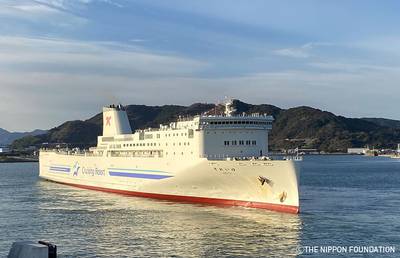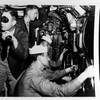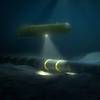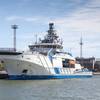World’s First: Fully Autonomous Ship Navigation Systems Tested on Coastal Ferry in Japan
The Nippon Foundation, Mitsubishi Shipbuilding, and Shin Nihonkai Ferry Co., Ltd. have informed they've completed a demonstration test of what the companies say is the world’s first fully autonomous ship navigation systems on a large car ferry, conducted on the Iyonada Sea from Shinmoji, Kitakyushu City, on January 17.
The demonstration was part of MEGURI 2040, a project promoting the development of fully autonomous vessels supported by The Nippon Foundation.
"This test demonstrated the world’s first fully autonomous navigation system, on a 222-meter ferry, with autonomous port berthing and unberthing using turning and reversing movements and high-speed navigation of up to 26 knots," Mitsubishi said in a statement.
According to the press release, other new technologies included in the advanced fully autonomous operation system include sensors to detect other ships using infrared cameras, a remote engine monitoring system, and a sophisticated cyber security system.
"These advances in fully autonomous ship navigation are seen as a significant step toward safer and more efficient coastal shipping," said Mitsubishi Heavy Industry, of which Mitsubishi Shipbuilding is a part.
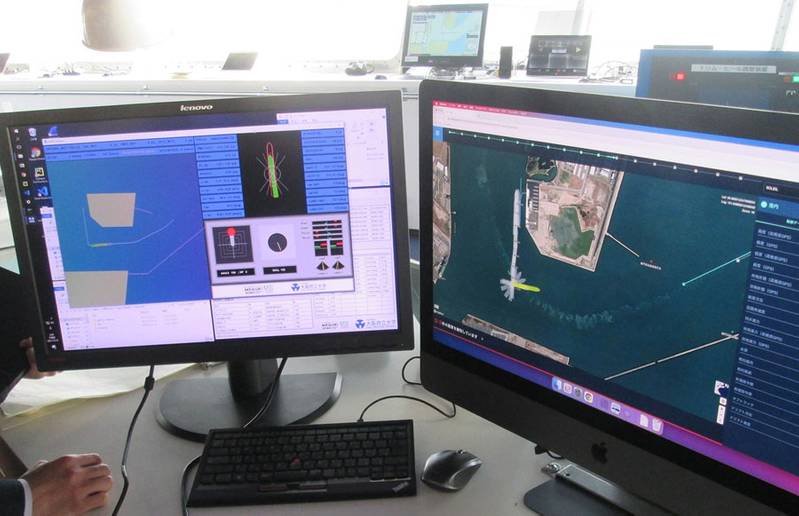 Credit: MHI
Credit: MHI
Fully autonomous ship project (Smart Coastal Ferry)
The companies said that the successful demonstration test was of the fully autonomous Smart Coastal Ferry project.
The newly built SOLEIL ferry began navigating with an onboard crew on July 1, 2021, compiling data for the development of a fully autonomous ship navigation system. Mitsubishi Shipbuilding Co., Ltd., which has experience in developing navigation support systems that realize automation and crew labor savings, is responsible for the integration of the entire system, and Shin Nihonkai Ferry Co., Ltd. is in charge of setting the vessel’s system requirements and conducting the demonstration test. These developments will help resolve issues in coastal shipping including improved safety, crew labor savings, and cost reductions.
The demonstration test of what has been described as the world’s first fully autonomous ship navigation systems of the 222-meter smart vessel was conducted on a 240-km route from Shinmoji (Northern Kyushu) to Iyonada, which takes approximately 7 hours, at a maximum speed of 26 knots (approximately 50 km/hour).
"The test vessel was equipped with a high-precision sensor image analysis system with infrared cameras that can detect other ships even in darkness, a SUPER BRIDGE-X automated ship navigation system that includes an automated avoidance function, and an advanced automated port berthing/unberthing operation system that can perform turning and reversing movements that are even difficult for manned vessels.
One of the biggest issues of a fully automated vessel is fault prediction, and enhanced engine monitoring technologies that monitor motor conditions are being developed and tested as well," MHI said.
According to MHI, the project is also developing various other technologies essential to the promotion of fully autonomous navigation, including platforms for advanced data security to protect the navigation data used for onshore monitoring and support.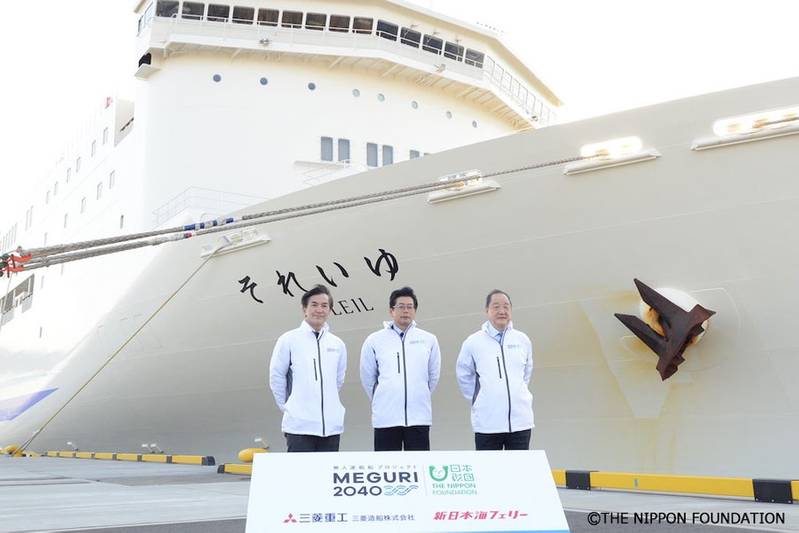 Credit: MHI
Credit: MHI
Mitsuyuki Unno, Executive Director, The Nippon Foundation said: "This was the world’s first fully autonomous ship navigation of a large vessel of over 200 meters in length with a maximum running speed of 26 knots, and I hope this will lead to further development toward practical use. There are still many issues to be resolved, however, and I believe today’s results will be a guide toward the creation of international rules for fully autonomous vessels.
Naoki Ueda, Executive Vice President, Mitsubishi Shipbuilding added: "This demonstration test greatly accelerated the development of fully autonomous ship navigation systems using many advanced technologies including artificial intelligence. We will continue to develop technologies using the valuable knowledge gained to achieve safety and high-quality service for passenger ferries, which play an important role in supporting marine transportation in the island nation of Japan.
Masami Sasaki, Executive Director, Shin Nihonkai Ferry Co., Ltd. "We are honored to be involved in the development of a fully autonomous ship navigation system that represents the future of Japan’s shipping industry. As a passenger ferry company, we have high expectations for the social application and widespread use of fully autonomous operation as one of the solutions to issues including human error and crew labor savings."



